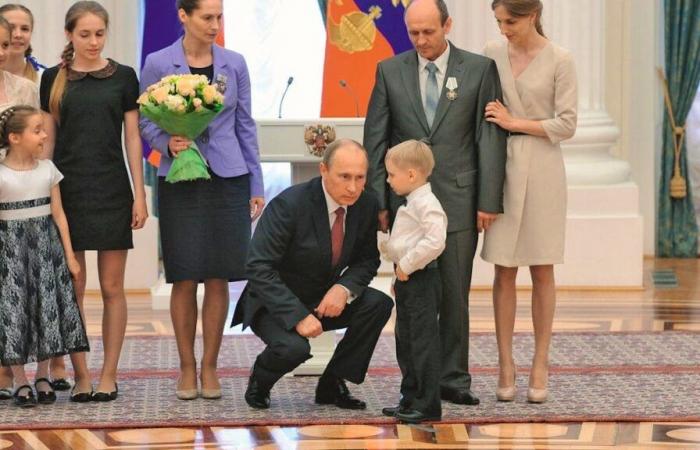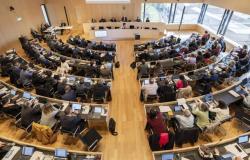The Upper House of the Russian Parliament validated, on Wednesday, the law banning the promotion of a child-free lifestyle, against a backdrop of the demographic crisis in Russia, largely amplified by the conflict in Ukraine.
Approved unanimously by senators, the law had already been passed by the Duma, the Lower House, on November 12. This text is part of the ultraconservative turn of Russian power on social issues, taken under the leadership of Vladimir Putin and reinforced since the large-scale assault launched against Ukraine in February 2022.
According to the law, individuals who engage in the promotion of a child-free lifestyle would risk a fine of 400,000 rubles (around 4,000 euros) and civil servants double that. For legal entities, the penalty could be increased to 5 million rubles (47,000 euros).
Political and religious leaders see in the defense of so-called “traditional” values an extension of Russia’s struggle against the West, accused of moral “decadence”. The rights of the LGBT community in Russia have notably been reduced to nothing.
The law also aims to respond to the significant Russian demographic decline which Vladimir Putin has never managed to remedy since he came to power a quarter of a century ago.
In the crosshairs of the promoters of the law, communities and groups which would expose themselves to heavy fines for doing what is described as the promotion of a “Childfree” lifestyle (without children) and which would have an aggressive attitude towards “those who realize their need to be mother or father”, whether on the internet, in the media and books, in films or in advertisements.
Senators also approved on Wednesday the law preventing the adoption of Russian children by nationals of countries authorizing gender transition and change of marital status, now prohibited in Russia. Excluding countries that authorize gender transition amounts to excluding “NATO countries”, where this is generally permitted, noted in their explanatory text the deputies, who had already voted for the law.
Since 2013, the country has already banned adoption by foreign homosexual couples or unmarried nationals from countries where same-sex union is legal. Both laws have yet to be signed into law by President Vladimir Putin, usually a formality.






